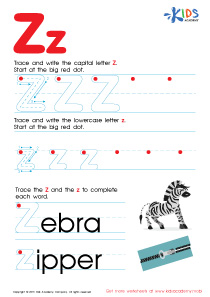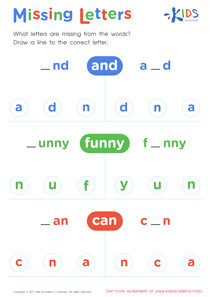Cognitive Development Extra Challenge Phonics Worksheets for 6-Year-Olds
3 filtered results
-
From - To
Our "Cognitive Development Extra Challenge Phonics Worksheets for 6-Year-Olds" offer a stimulating and educational experience tailored to enhance your child's phonics skills. Specifically designed for young learners, these worksheets use engaging exercises that nurture cognitive development through fun, interactive tasks. Perfect for children ready to move beyond basic phonics, these activities challenge their understanding and improve reading fluency. Ideal for both classroom use and home practice, our worksheets guide kids through complex sounds and letter combinations, fostering a deeper grasp of language in an enjoyable way. Empower your child's literacy journey with our expertly created phonics challenges!
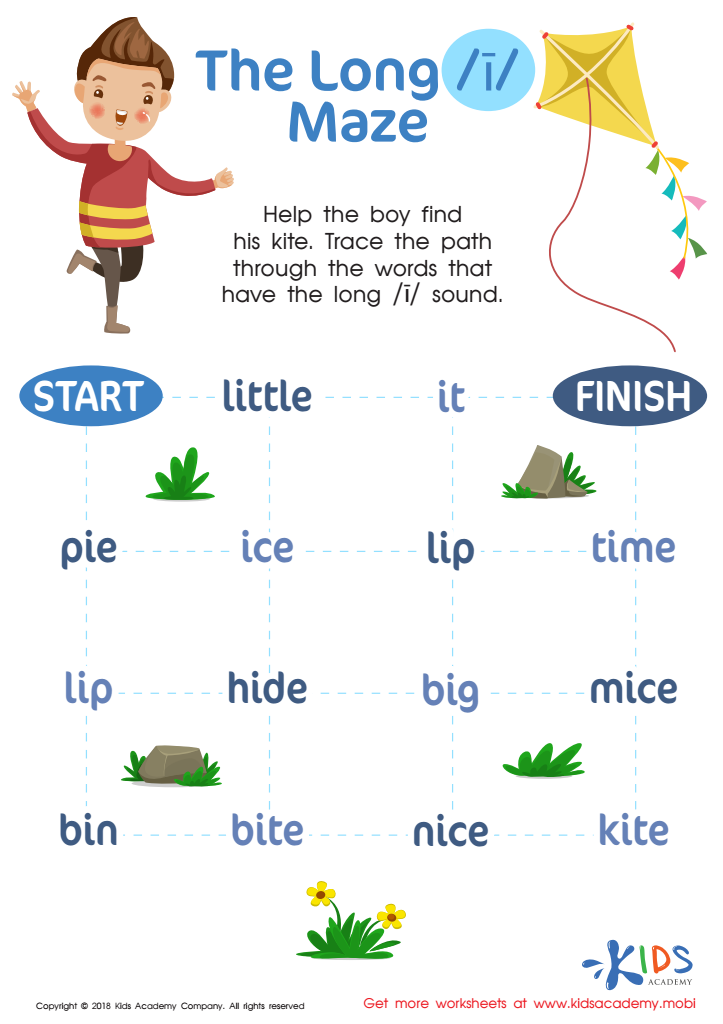

The Long I Maze Reading Worksheet
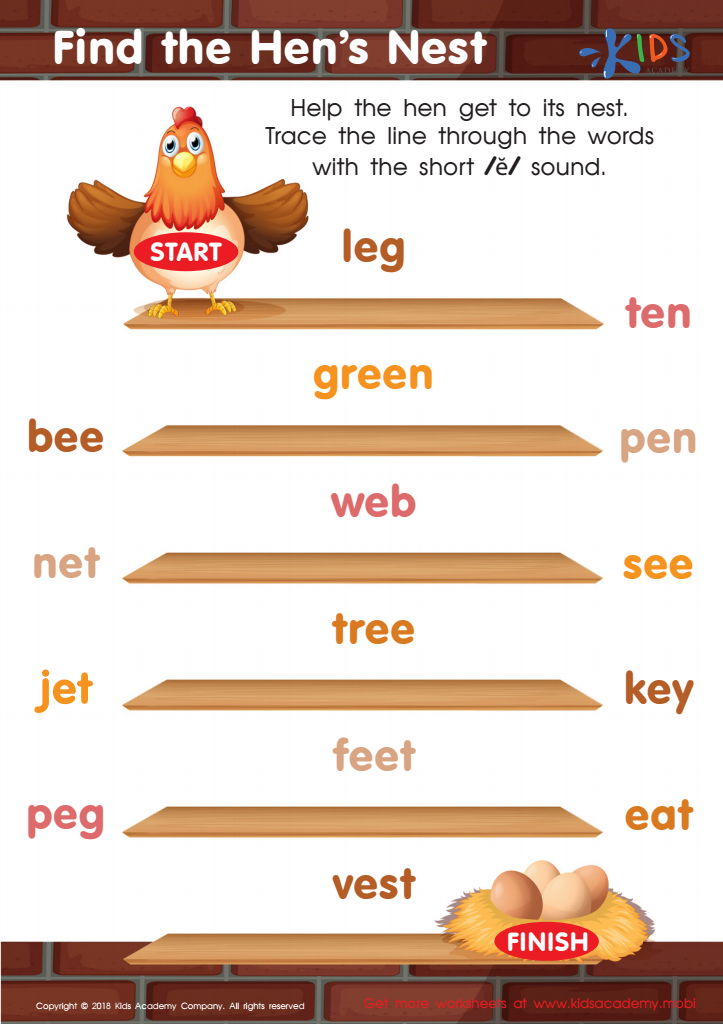

Find Hens Nest Reading Worksheet
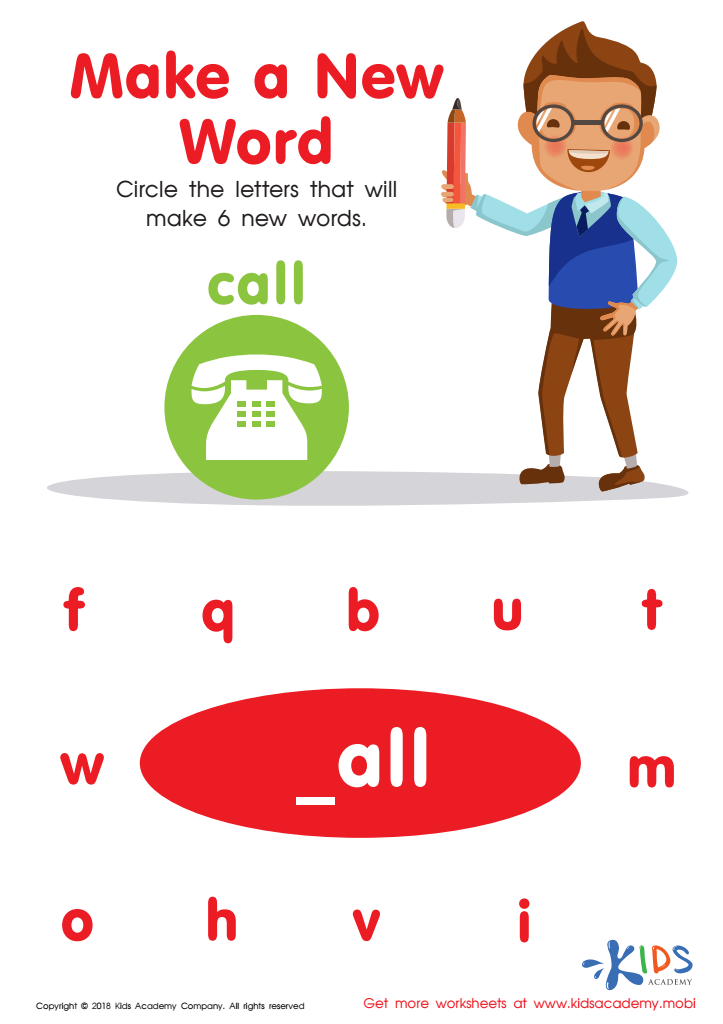

Make a New Word Worksheet
Cognitive development plays a crucial role in a child's overall growth, and phonics, in particular, is essential for a 6-year-old's academic and personal development. Phonics serves as the gateway to reading, writing, and effective communication. At this age, children’s brains are especially receptive to learning language and decoding skills. Introducing cognitive development extra challenge phonics ensures they grasp the foundational elements that will support their educational journey.
First, focusing on phonics helps children recognize the relationship between letters and sounds, a critical skill for reading fluently. Strong phonics skills also enhance spelling capabilities and broaden vocabulary, which boosts comprehension and confidence. These skills provide a scaffold for learning more complex literacy skills later.
Second, challenging cognitive activities in phonics especially enhance critical thinking and problem-solving abilities. Engaging with challenging phonics tasks stimulates brain development, encouraging neurons to form robust connections necessary for advanced cognitive functions.
In practical terms, children who excel in phonics often find themselves better prepared for academic tasks, leading to positive school experiences and a love for learning. It also empowers them to express themselves clearly and effectively, enriching their social interactions. Thus, parents and teachers should prioritize phonics to ensure optimal cognitive development, setting the stage for lifelong learning and success.
 Assign to My Students
Assign to My Students









